When you have loop in the loop or nested loop, let`s say for-loop, regardless of the programming language(of course must be imperative)
for(int j = 1; j <= 100; j++){
for(int k = 1; k <= 200; k++){
\\body or terms
}
}
is the mathematical equivalent, when I want to sum it for i = 1 with all j = {1, 200} and i = 2 with again all j = {1, 200} and so on :

And the red-circled condition is unnecessary, right?
And the same applies for multiple nested loops?